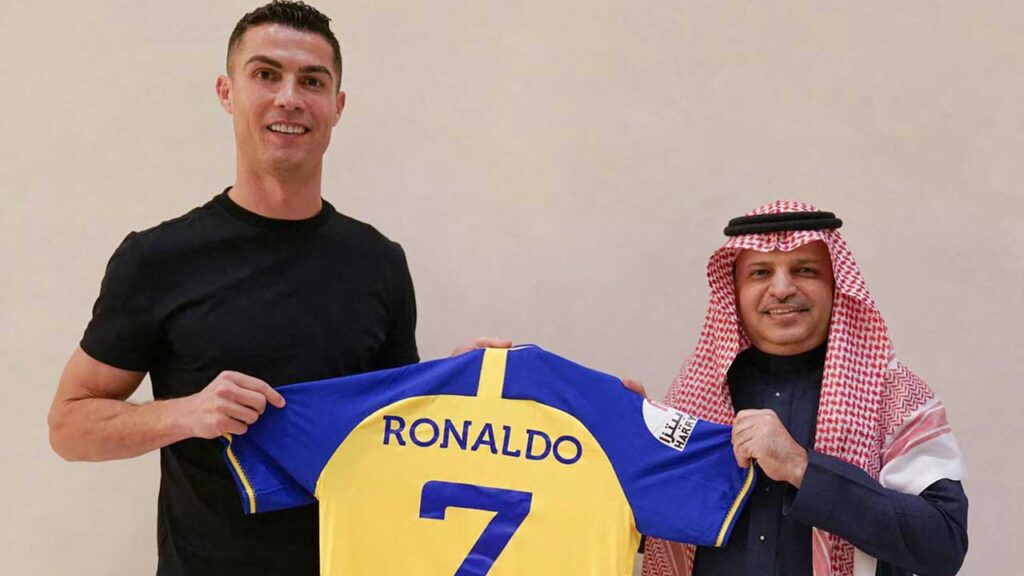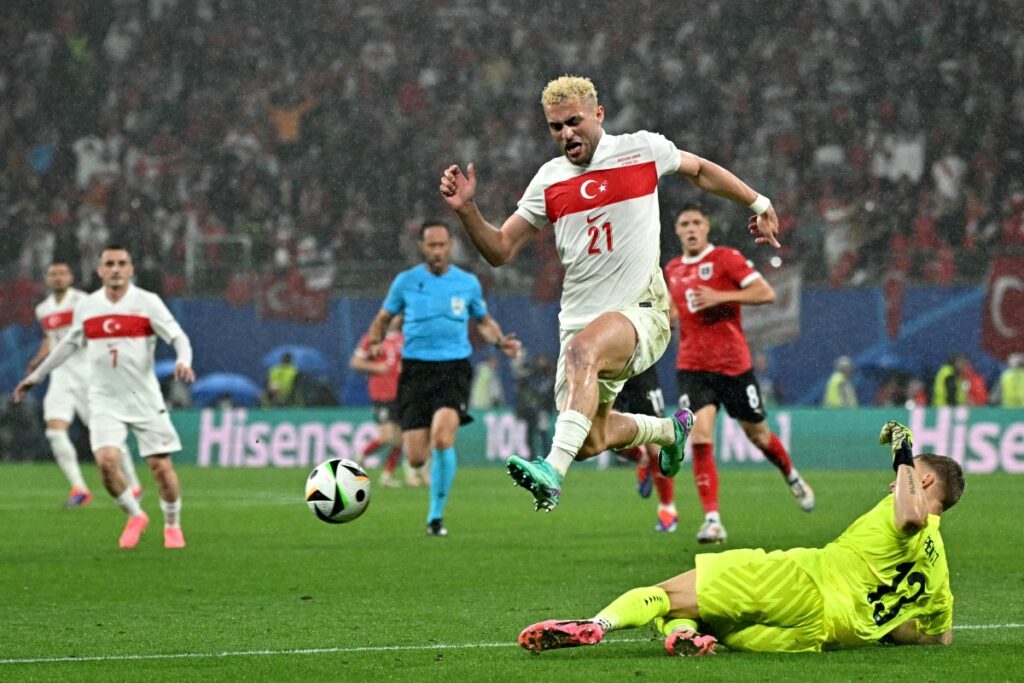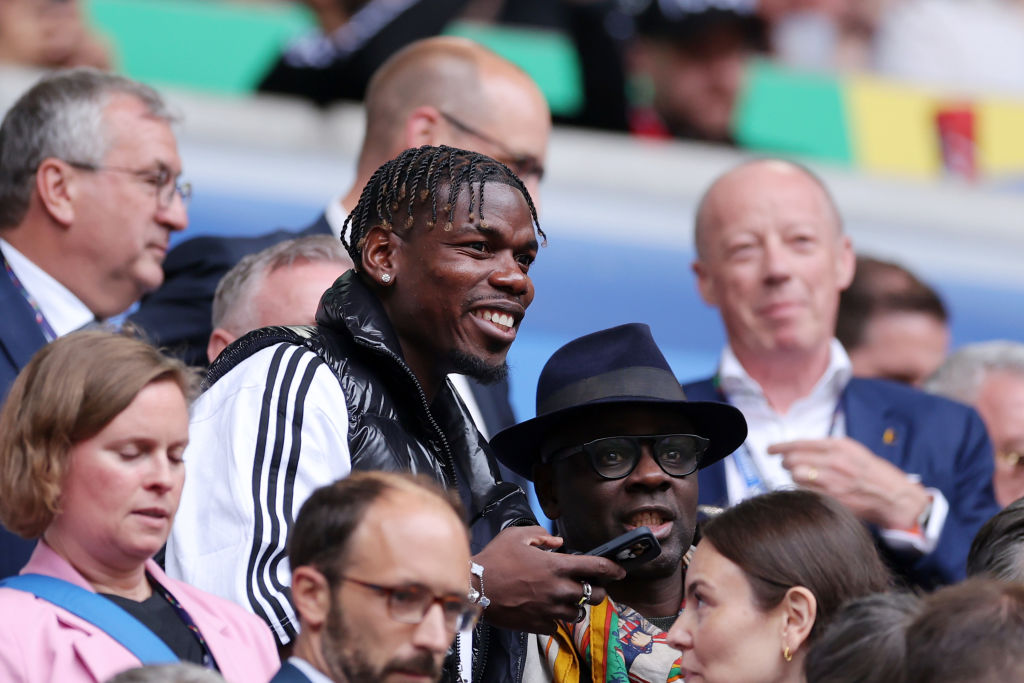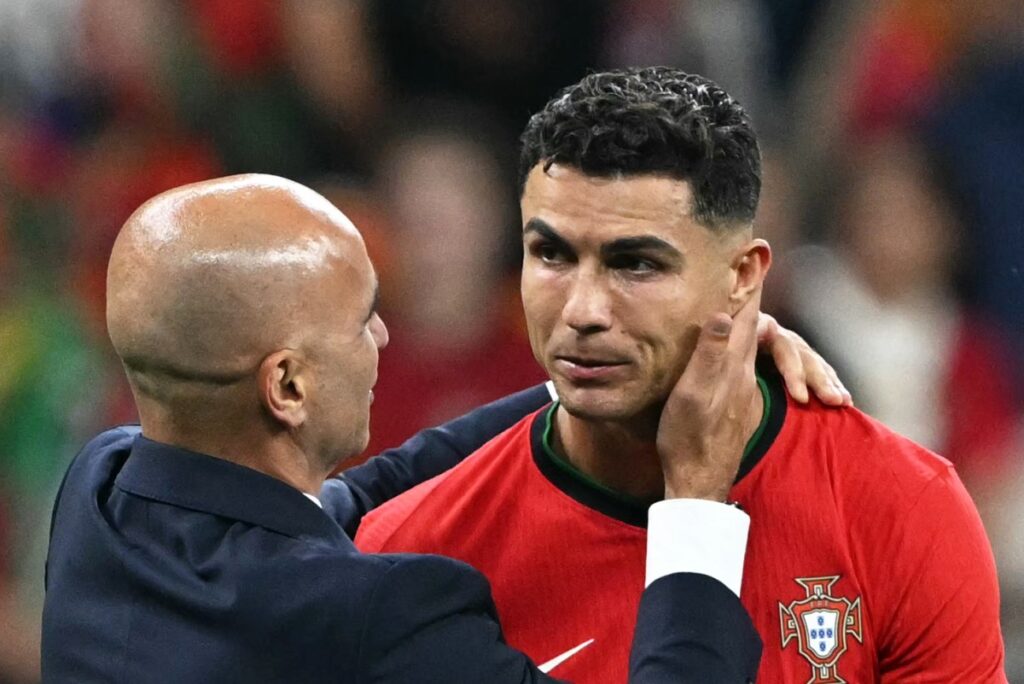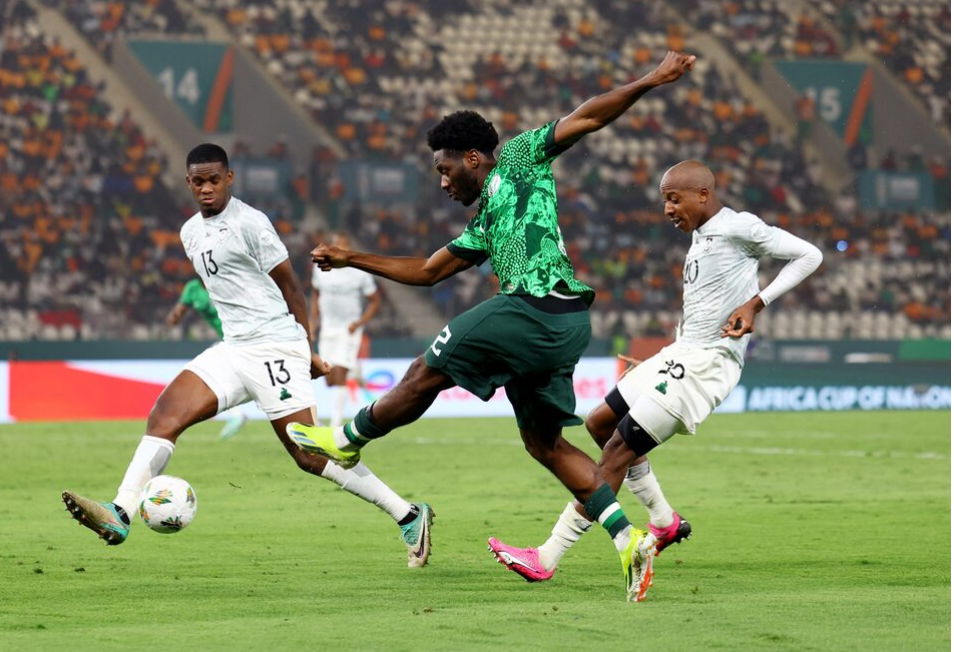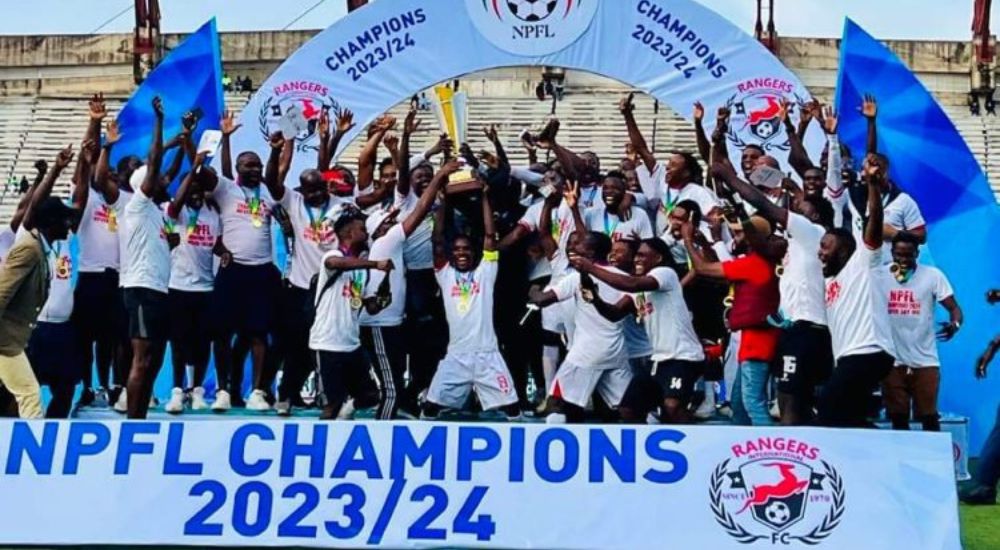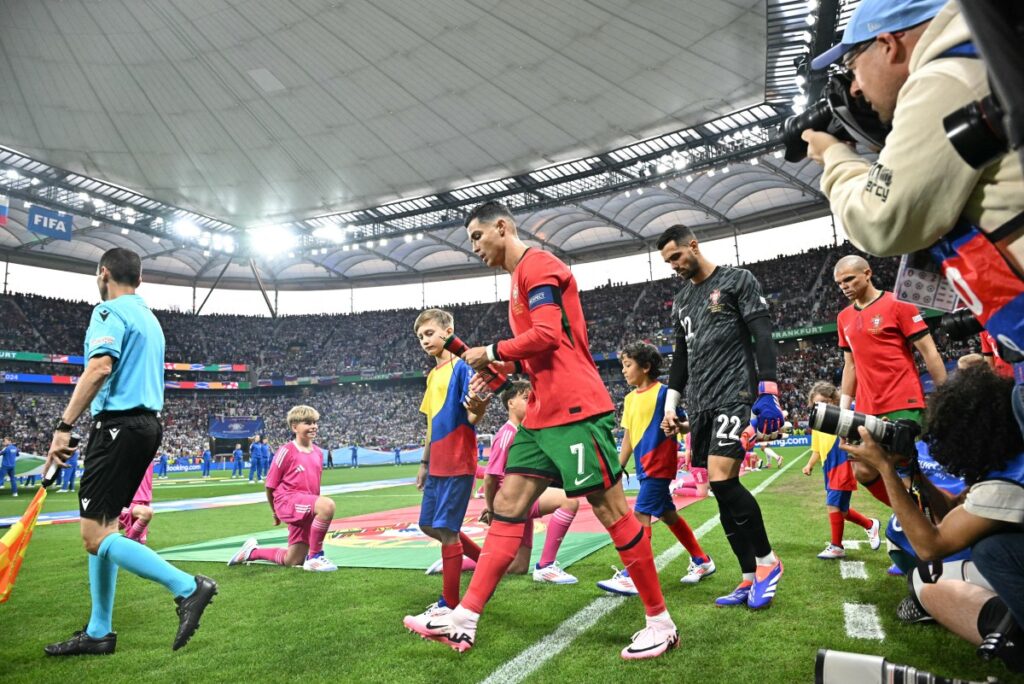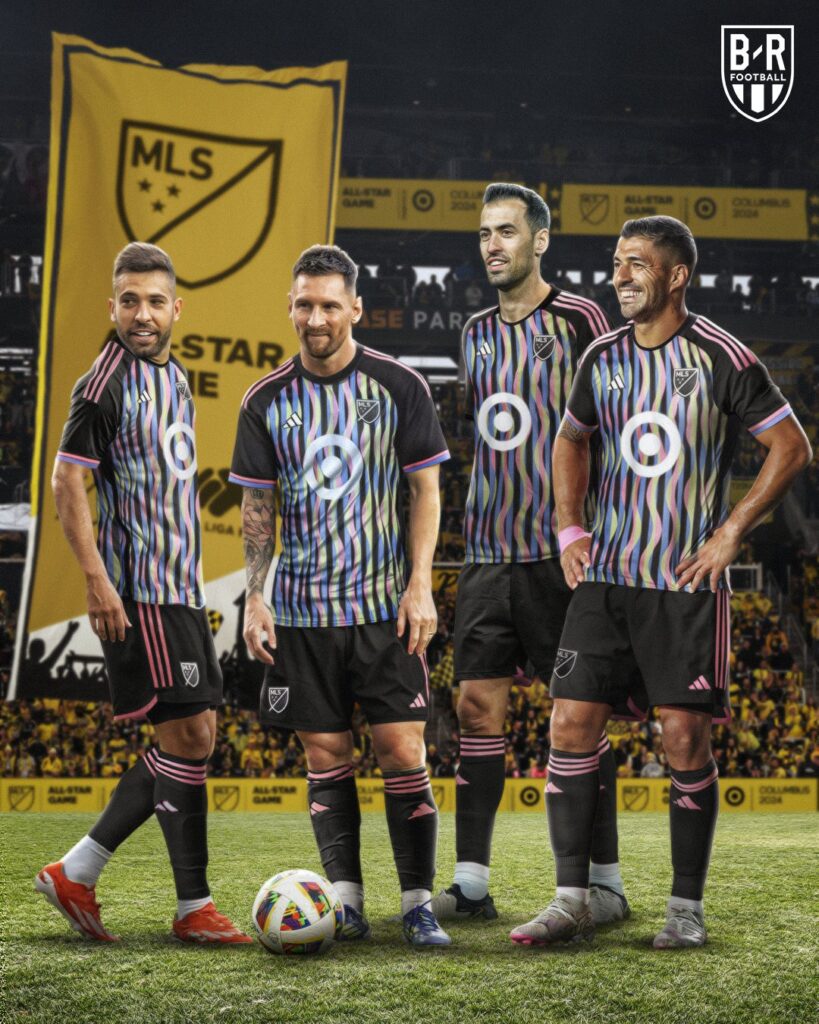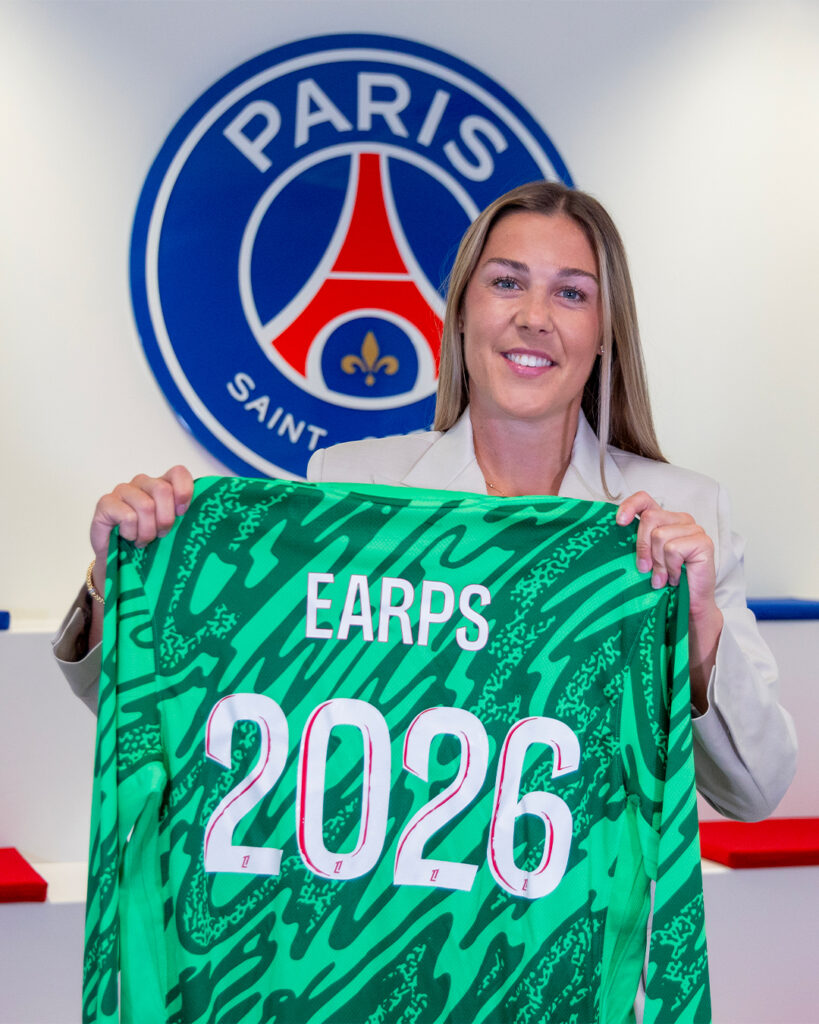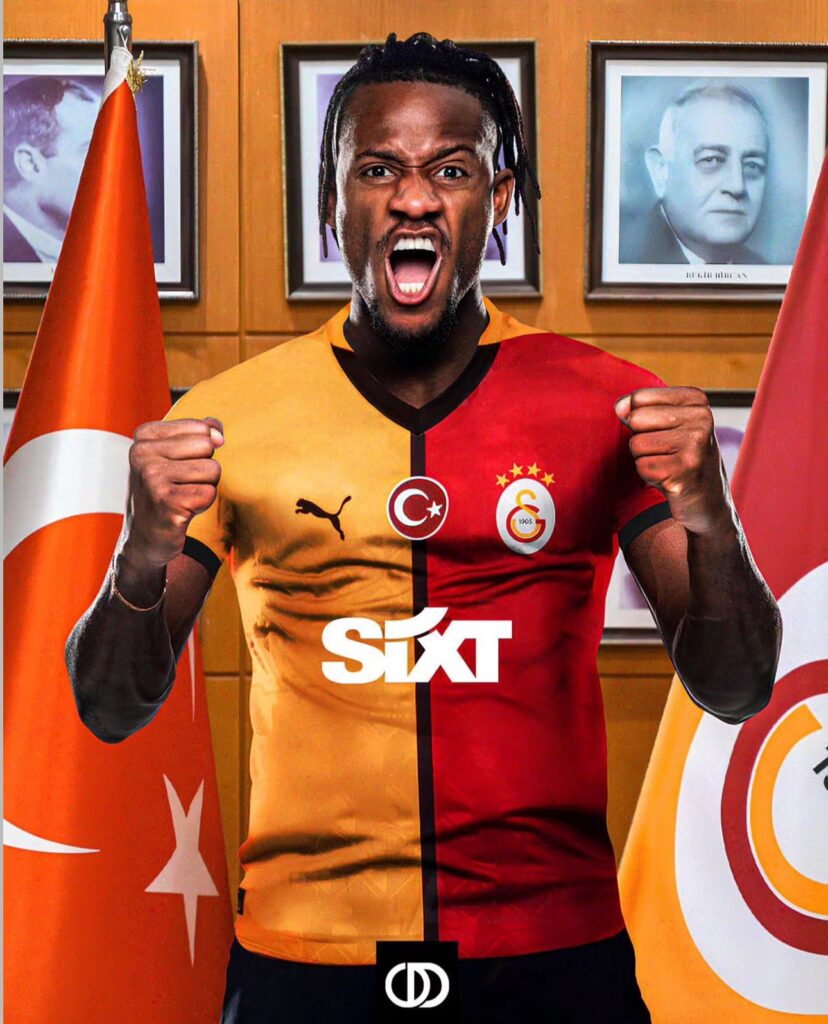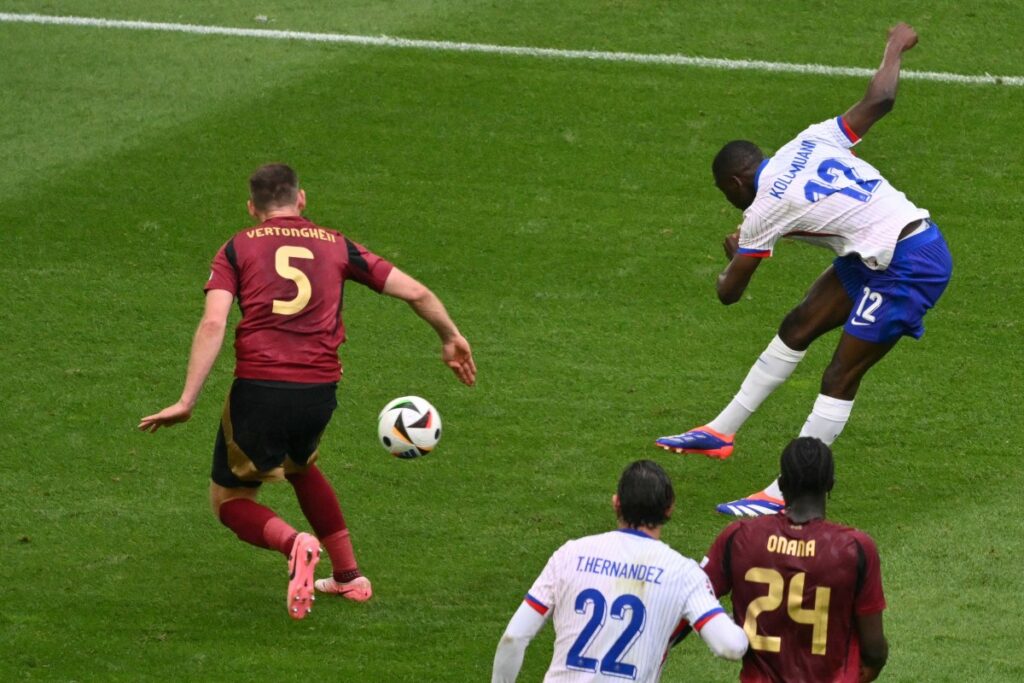
What money cannot do does not exist. That is exactly what is playing out in the current summer transfer market. In football, the richest clubs get all the best players to compete for the biggest trophies.
In the 1970s, up to the late 1990s, Italian clubs were the destination for the world’s best players because they could pay the big money that clubs in Holland, France, Belgium, and Eastern European countries demanded to let their best players leave for greener pastures.
England, Spain, and Germany took over in the dawn of the century with Premiership teams, buoyed by the new wave of money from television and other pacts, turning it into the Mecca of football.
Thus, playing in the English Premier League became the new golden dream of the world’s best stars. While players from South America, hitherto, preferred Spanish La Liga because of the clement weather, same language, and similar playing style, playing in England with its rich offerings became the new quest for these players, who dream of the luxury their talents could fetch them.
United States of America (US) and China had fleeting command of the transfer market in the early 1990s and 2000s respectively, but such attraction, particularly the Chinese model did not last long as they could not sustain the big payments needed to lure the world’s best legs to nascent leagues.
And now there is another Big Daddy in town, dolling out big dough to get players, some of whom are even in their prime. It is Saudi Arabia, bet shop which has an endless supply of petrodollars to throw into football projects.
In the past, playing in Europe’s biggest competition, UEFA Champions League was every player’s holy grail, bet prediction site but not anymore as Saudi Arabia is shelling out massive contracts to bring some of the top players in the world to join the Saudi Pro League.
The roll call is intimidating. Already confirmed for the 2023/24 season are Cristiano Ronaldo, who earns £173m a season in Al Nassr, and Karim Benzema, sports betting online who gets £100m at Al-Ittihad.
Six Chelsea of England’s regulars have packed their bags and relocated to Saudi Arabia. They include N’Golo Kante, Edouard Mendy, Hakim Ziyech, and Kalidou Koulibali. Romelu Lukaku, who is on loan to Inter Milan, and Thiago Silva are touted to be on their way to the league.
Also already in the Saudi League are Talisca (Al-Nasssr), Helder Costa (Al-Ittihad), Moussa Marega (Al-Hilal), David Ospina (Al-Nassr), Ahmed Hegazi (Al-Ittihad), Alvaro Medran (Al Taawoun), Adam Maher (Damac), Odion Ighalo (Al-Hilal) and Ever Banega (Al-Shabab).
These transfers would further solidify Saudi Arabia’s position as a crucial player in the global football market. To put their spending into perspective, it’s important to note that the highest-ever contract in European football was Lionel Messi’s deal with Barcelona. He earned €75 million per year while at the Catalan club. However, premier league odds the financial landscape has shifted dramatically in Saudi Arabia.
Ronaldo reportedly earns an astonishing €200 million per year, while Benzema also commands the same amount. Kante’s potential contract would amount to €100 million yearly.
A spending spree sparked by the Saudi Public Investment Fund’s (PIF) takeover of four of the kingdom’s leading clubs earlier in June – Al-Hilal, Al-Ittihad, Al-Nassr, and Al-Ahli – has caused a serious stir across the world of football. The fund has acquired a 75 per cent stake in each of those sides and has immediately set about targeting elite-level players for their assets.
Saudi Arabia offered Messi a staggering £400 million contract, but the Argentine superstar rejected it in favour of playing for Inter Miami. Apart from paying players humungous salaries, bet odds the Saudis’ targets are mainly free agents, whose acquisition would likely have a significant impact on European football.
According to European football experts, the lure of Saudi money could entice more players to play out their contracts, which could lead to increased competition for clubs seeking to secure their services.
This development will definitely change the dynamics of player transfers and club negotiations in the coming seasons. A player like Kante is guaranteed a staggering £90 million per season through a combination of “image rights, commercial deals and ‘creative’ portfolio’. This equates to a weekly wage of about £1.65 million.
According to reports, Saudi Arabian football bosses carefully drew up a list of players to get into the system, and to close the deals, it is relying on money, the one commodity it knows it can offer more of than any of its rival leagues.
The plan is a centralised effort supported at the highest levels in Saudi Arabia, and financed by the kingdom’s huge sovereign wealth fund. The ultimate aim is to turn the country’s domestic league, a footnote on the global soccer stage, into a destination for top talent.
To make that happen, Saudi clubs are already approaching players receptive to moving to the kingdom with some of the highest annual salaries in sports history. The deals could require more than $1 billion for wages for some 20 foreign players.
However, with all the big money flying around, some players still rejected the call to join the Saudi Arabia train. Apart from Messi, touted by his admirers as the greatest player of his generation, who embraced Inter Miami in the U.S. Major League Soccer (MLS), Neymar, Luka Modric, and Isco elected to remain in Europe.
Explaining the new wave of investments by the Kingdom of Saudi Arabia, former Gombe State FA Chairman, Ahmed Gara Gombe, who is a consultant to the Royal Morocco Football Association, said it’s a new strategy adopted by the Islamic country to preserve its national and social security in a nation known for its many restrictions.
Gombe said Saudi Arabia sees sports as a tool for national preservation and social inclusion. He said: “In the last six years or thereabout, the Saudi crown prince, who is less conservative than his fathers, discovered that his citizens were leaving the country in droves to more friendly nations where they could enjoy some of the things their own country denied them.
“There were social and economic restrictions that stopped the citizens from living the sort of life they could get in such neighbouring countries as Kuwait, UAE, Qatar, and even Bahrain. So, he decided to relax some of these restrictions.
“In the recent past, women were not allowed to drive, or go to stadiums to watch football, boxing, and other sports. They were also not allowed to go to cinemas. He realised that Saudis travel to Europe, America, and neighbouring countries to enjoy such luxuries.
“Apart from the capital flight that came with such migrations, it was also denying the country’s youthful population some form of entertainment, hence their preference for moving to more relaxed countries than staying in ‘bondage’ in Saudi Arabia. “He also discovered that the amount of money leaving Saudi Arabia every weekend was so alarming that he set out to do something to stop it.
“There were no nightclubs in Saudi Arabia, no casinos; and beaches were restricted to only men. Now, all these things have been provided for everybody by the government.
“They have taken it a bit further by bringing in the biggest boxing, golf, and other sports events to the kingdom. He has now relaxed cultural, social, and even religious restrictions. The only exceptions to the new way of life are the holy cities of Mecca and Medina. You still cannot bring in the European way of life there. They still have those restrictions to preserve Islamic values in the cities.
“Before now, American stations in Saudi Arabia allowed people to drink alcohol within the confines of the base and some Saudis used to sneak in there to enjoy themselves. Saudi Arabians were moving to other countries to become citizens, but the new laws have tamed such migrations.”
Gombe also explained that the kingdom now encourages rich individuals to invest in clubs, both at home and abroad. “So, they have bought clubs in England, France, Italy, and many other parts of Europe. After that, they are now bringing the stars home for their people to enjoy instead of travelling abroad to watch big games.”
Apart from football, golf, and boxing, Gombe said the Saudis also going into athletics, adding that soon, they would start producing world champions with the resources and new investment facilities across the kingdom.
“If you go to Saudi Arabia, you will see many high-rise buildings, which are not just for the aesthetic values. These buildings are there because they want the best. You will find such structures in almost all the Arab countries because the people like competition that would bring out the best in them.”
Writing for the New York Times, Tariq Panja and Ahmed Al Omran disclosed that the Saudi league’s British chief executive, Garry Cook, a former Nike official, who briefly ran Manchester City after it was bought by the brother of the ruler of the United Arab Emirates, has been tasked with executing the plans.
“The project comes on the heels of a surprisingly strong performance by Saudi Arabia at last year’s men’s World Cup in Qatar. The team’s run included a stunning victory over the eventual champion, Argentina, which stoked pride on the Saudi streets and in the halls of power in Riyadh. The project’s goal is not so much to make the Saudi league equal to century-old competitions like England’s Premier League or other top European competitions, but to increase Saudi influence in the sport, and perhaps boost its profile as it bids for the 2030 World Cup. But the effort also is reminiscent of a similar scheme a decade ago in which China sought to force its way into the global soccer conversation through a series of high-profile and high-dollar acquisitions. That bold plan, eventually marred by broken contracts, economic implosions, and the coronavirus pandemic, is now seemingly at an end.
“The plans for the Saudi league to become the dominant domestic competition in Asia are similarly subject to the whims of the country’s leadership, and could yet be derailed by a sudden change of direction, or an ability to sign the kind of elite talents being pursued. The players, too, would be committing to contracts with teams that in the past have been regular attendees at arbitration hearings claiming unpaid fees and salaries.”
The plan is for the league, rather than the clubs, to centrally negotiate player transfers and assign players to certain teams, in a model similar to the one used by Major League Soccer, as it built its global profile.
“Centralised signings would be a departure from what is typical in much of the rest of the world, where clubs directly acquire and trade players independently.
“The size of the Saudi war chest is unclear, but officials briefed on the subject say it is as hefty as the list of players the league has identified as potential recruits. Much of the money invested in the league and the clubs in recent times has come from the Public Investment Fund, the country’s sovereign wealth fund chaired by the kingdom’s powerful crown prince, Mohammed bin Salman.”
The fund, according to Tariq Panja and Ahmed Al Omran, has signed 20-year commercial agreements worth tens of millions of dollars with the four most popular clubs in the Saudi Premier League.
“Those deals will require the teams, two from Riyadh and two from the port city of Jeddah, to play games at new arenas in entertainment complexes being built by PIF subsidiaries. The PIF also sponsors the league itself through one of the companies in its portfolio, the real estate developer, Roshn.”
They disclosed that the goal is for the four biggest teams to field three top foreign players each, and for another eight players to be distributed among the remaining 12 teams in the league.
“The move for greater centralisation of the league would end a period of autonomy granted to the clubs and is further indication of the Saudi state’s interest in using sports as part of a drive to alter perceptions of the kingdom on the global stage and diversify its economy away from oil. Saudi Arabia has been among the biggest spenders in global sports in recent years, bringing major events to the kingdom and investing in sports properties.”
Accused of using sports to divert attention from its human rights record, the Saudis have not been deterred as exemplified by the golf series, which have drawn some of the sport’s biggest stars to the LIV.
“Saudi officials have vigorously denied ‘sport-swashing’ allegations, arguing that some of the motivations behind their push into global sports include catering to their sports-loving population and encouraging greater physical activity in a country where obesity and diabetes are common,” they wrote.
With the money flying around and players scrambling to be in on the gravy train, some football experts believe the ‘insane’ money being paid to players would have corrupting influence on the game.
In fact, former Manchester United Captain, Gary Neville has called for an embargo on players moving to the Saudi League. He told BBC Sport: “The Premier League should put an instant embargo on transfers to Saudi Arabia to ensure the integrity of the game isn’t being damaged.
“Checks should be made on the appropriateness of the transactions.
“If it comes through that process, obviously transfers could open up again. But I do believe, at this moment in time, transfers should be halted until you look into the ownership structure at Chelsea and whether there are beneficial transfer dealings that are improper.”
Neville’s call puts the searchlight on some Premiership clubs’ financial struggles and a potential ploy to balance their books through the back door.
The BBC reports that both Chelsea and Wolves have been facing difficult decisions around recruitment this summer as they try to keep within the Premier League’s three-year limit on losses of £105m under Financial Fair Play (FFP) rules.
“Chelsea spent more than £400 million in transfers last season, while Wolves posted a £46.1 million loss last year and boss Julen Lopetegui said the club must ‘solve’ FFP issues to compete in the top flight.
“Wolves had thought Neves would join Barcelona this summer. However, the £47m fee agreed with Al-Hilal for the Portugal midfielder was far higher than anticipated.”
However, some experts argue that such issues as human rights violations should not detract from the ‘new lease of life and other good things’ Saudi Arabia has brought to sports as big business.
Confederation of African Football (CAF) top official, Dr. Chris Emeruwa, says the Saudis have a clear idea of what they want to achieve with the game and have gone ahead to do things necessary to get the desired results. On the impact of the Saudi Pro League on the global game, Emeruwa said it would ginger more investments in the game by those who want to remain competitive.
“Football is purely business and people currently running contemporary football will always explore ways to grow their business. Players, coaches, and others will also always look for ways to improve their lives.
“We have people migrating to Europe and nobody is questioning that. Football has an international dimension to it in terms of promoting the country.”
He dismissed the allegation that Saudi Arabia’s investments in sports amount to financial doping, saying, “If any country can put things that would attract players, coaches, and technical experts to their game, so be it. People should develop their own country’s structures to attract the best players.
“Many people are watching the English Premier League and the organisers are making a lot of money from viewers across the world. Anybody who wants to get the best players knows he has to invest in his game.
“We need to also look at the calibre of people moving to Saudi Arabia. If their policy is to attract the best players, then we should begin to put a connection to the dot. It is for a strategic reason that they are attracting the best experts to work behind the scene.
“A whole lot is going on in Saudi Arabia. When things like this happen, we also must first identify where our league is and how to leverage it.” Emeruwa, who is one of the best FIFA security officers in the game, said countries like Nigeria can key into the Saudi structure to develop their football. He added: “Saudi Arabia is open to signing pacts for joint ventures and it is left for the Nigeria Football Federation to think of how they can use it to develop Nigerian football. The football association should explore ways of joining the Tsunami, learn from the Saudis, and seek ways to tap from the enormous opportunities they are creating.”
Former Super Eagles Manager, Adegboye Onigbinde, sees the Saudi Arabia phenomenon as a development worthy of emulation, rather than condemnation.
According to Onigbinde, who has for decades been advocating Nigerian football development through the grassroots, Saudi Arabia is beginning to attract the best players to its league because it has developed the game into a big business capable of paying the huge fees required to attract the best legs.
“Anybody who raises a voice against the Saudi Pro League is not being democratic. How many Nigerians are in Canada now for various jobs? Football is a calling and players go to where they are well paid; so, it is not Saudi Arabia’s fault that they are doing things that are attracting the best footballers to their league.”
On the allegation that the Saudis are trying to use sports to whitewash its image, which has been dented by alleged human rights abuses, Onigbinde said the decision to either go to the Middle Eastern country or not should be left to the individual players to take.
“Football is a calling and people go to wherever they feel their interests are best served. It is unfair and undemocratic for anybody to try to stop people from moving to where they feel they will make the best use of their talents.” He advised Nigerian football authorities to find ways of emulating Saudi Arabia where things work, adding that if the country developed its football to world standard, people from across the world would troop to Nigeria for the game.
“They are talking about human rights abuses, but I ask: ‘If a country is known for killing people and some decide to go there, nobody has the right to stop them.’
“On Nigeria compared to Saudi Arabia, I have been talking about developmental programmes for the country’s football, but nobody wants to listen. The opportunities are there, but we are not doing anything with it.
“I have long said I will no longer discuss Nigerian football because to me it is non-existent. Make your football good and people will come to play here. We should look at why Nigerian players troop abroad for greener pastures.”
There are questions about the sustainability of the Saudi Arabia league, with some pundits worrying that it would not turn out to be another Chinese Super League, which, for a brief period, attracted much interest and paid huge sums to attract high-profile players, such as former Manchester United and City forward Carlos Tevez. Such levels of spending didn’t last.
Promoters of the Saudi Pro League argue that both leagues operate on different models. While the Saudi Pro League, which has existed since 1970 with a real fan base, depends on government funding, the Chinese Super League was about encouraging entrepreneurs to do things. Then that stopped.
The presence of the big stars has attracted a lot of attention to the league, with television revenue galloping to an unprecedented high. It also has a model that makes it purely a business concern that wants to change the economy of the game in Saudi Arabia to make it more private sector driven and develop clubs and companies and brands.

